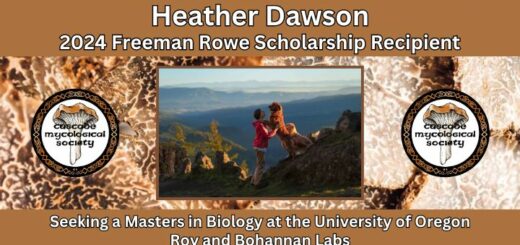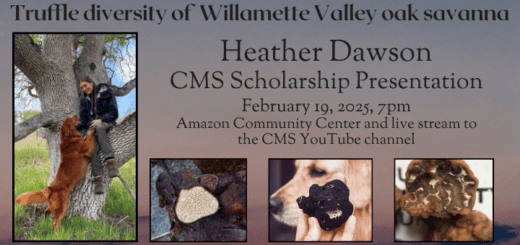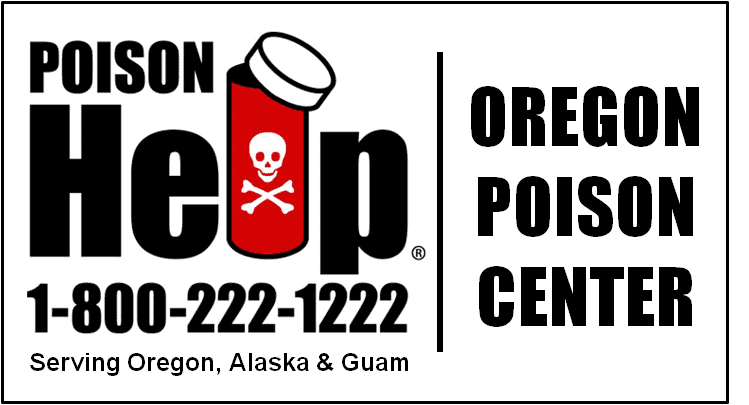2019 CMS Grant Recipient
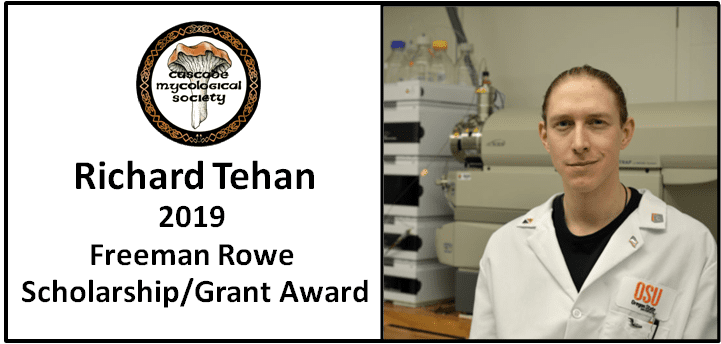
CMS has awarded Richard Tehan, a Ph.D. student at Oregon State University majoring in Pharmaceutical Sciences a $1000 grant. Following are a few details regarding the project he will be applying these funds toward. If you would like to read Richard’s entire grant proposal you will find it here.
Drug discovery and analysis of secondary metabolism in new species of Cordyceps
Project Background: For the past four years, I have conducted chemical research for my Ph.D. thesis at Oregon State University, College of Pharmacy, in the lab of Dr. Kerry McPhail. My research has focused on the chemical analysis of fungi in genus Tolypocladium and has been part of a collaboration with the lab of mycologist, Dr. Joey Spatafora, in the Dept. of Botany and Plant Pathology, wherein we have attempted to understand and link the genetics and the chemistry of Hypocrealean fungi. This study examines thirteen Tolypocladium spp. representing diverse ecologies including mycoparasitic, entomoparasitic, endophytic, and soil-associated ecologies. They have been isolated from equally diverse environments—artic to tropical. I have employed chromatographic and mass spectrometric methods to analyze differential metabolite production across strains, growth conditions, and ecologies. By combining data on metabolite production with gene expression and genome mining data, my collaborators and I have discovered new secondary metabolites (SMs) produced by these fungi, linked them to their parent biosynthetic gene clusters, and moved toward elucidating their chemical ecology—that is, the function of these compounds in nature. My long-term ambitions are to expand this line of research to other Cordyceps s.l.
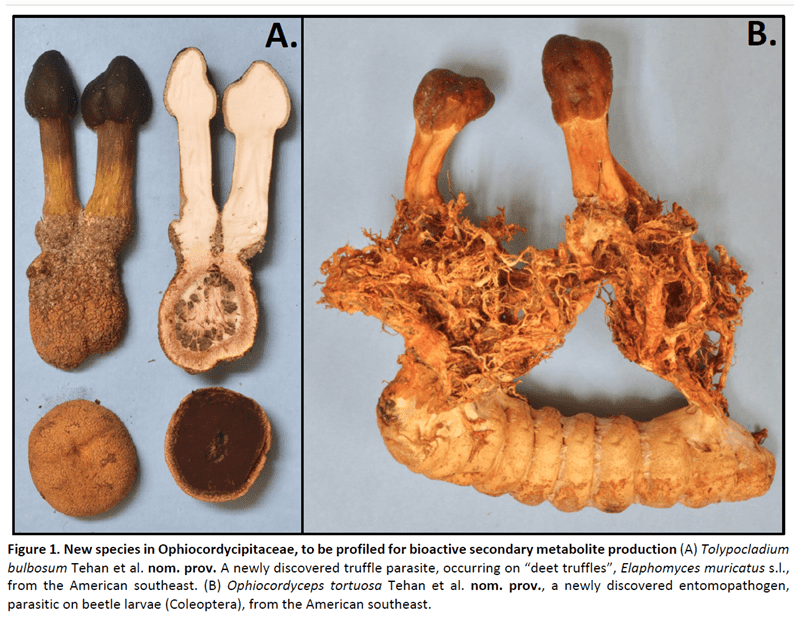
Project Objective: The objective of the proposed project is the discovery, isolation, structure elucidation, and biological characterization of bioactive secondary metabolites from new Cordyceps s.l. that were not originally included in my thesis work. This research would involve chemical profiling and analysis by LCMS, high-resolution tandem mass spectrometry (LC-HR-MS/MS), which would enable the identification of known SMs and the detection and structure elucidation of new SMs in chemical extracts of new fungal species. Extracts, extract fractions, and pure compounds from these fungi would be screened in a panel of bioassays including antibacterial cell-viability assays conducted by myself with a diverse panel of bacteria, and also functional bioassays which probe cellular processes and cell viability in human cancer cell lines conducted by collaborators in the laboratory of Dr. Jane Ishmael in the College of Pharmacy. The functional aspect of this latter assay involves incubation of test samples with a transgenic cancer cell line, which expresses and secretes a fluorescent protein through a defined cellular pathway, giving a strong fluorescent signal in negative controls. Cells that die, or wherein secretion is inhibited, give a lower signal, which provides an effective probe for protein secretion inhibition. Secretory pathways are overactive in various cancers and other disease conditions, and this process represents a potentially effective drug target which has been understudied. Extracts from previous Tolypocladium samples have generated several exciting hits in both the antibacterial and anticancer screens, on which I am currently following up. This involves the large-scale culture of fungi, and purification by liquid chromatography of active constituents using bioassay-guided fractionation.

Richard’s Professional Goals and Interests: My long-term career goal is to be appointed to an academic position where I can continue research on fungi and to teach and train students as well as the public about mycology and chemistry. I am an avid mushroom hunter and photographer, I am passionate about fungi and mycology and have been a member of several mycological societies. I have a deep and lifelong interest in the natural world it would be a great joy to give an engaging presentation on my research to the Cascade Mycological.

